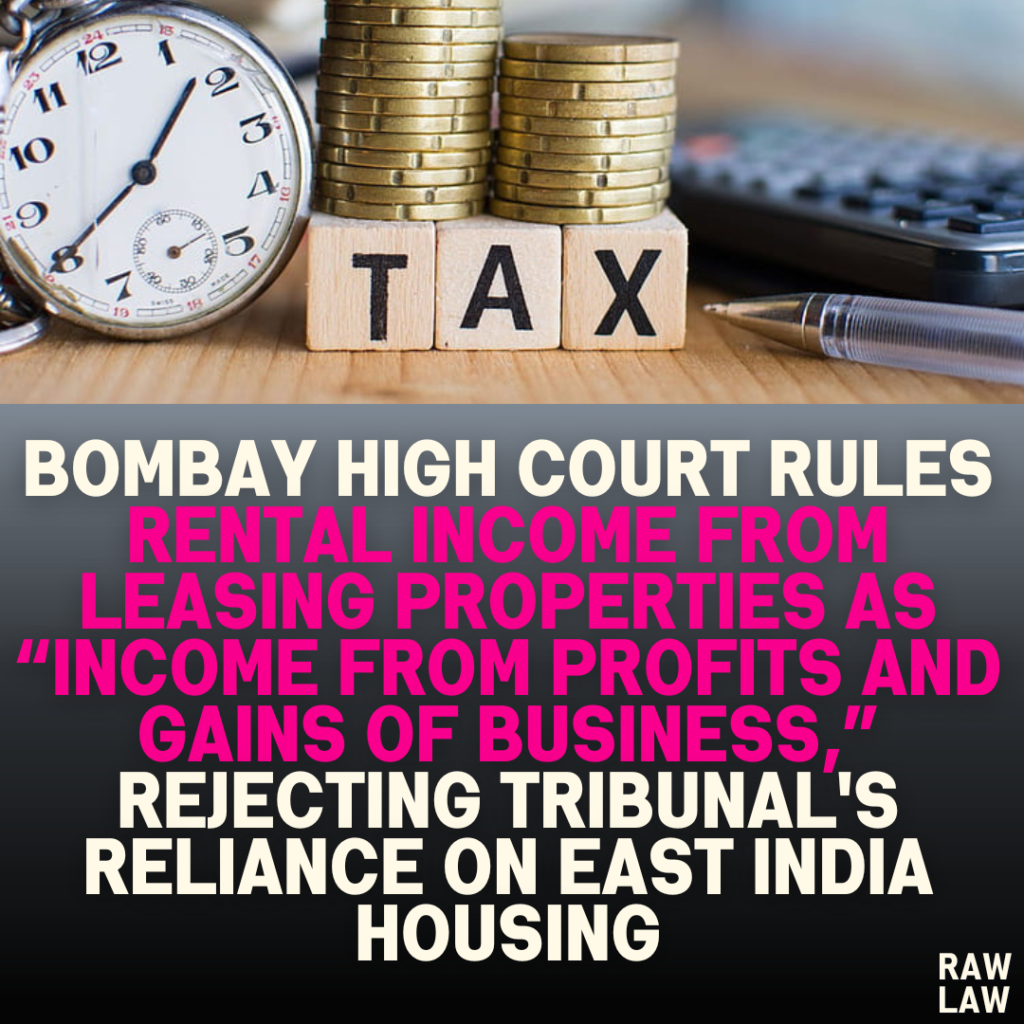Court’s Decision:
The Bombay High Court allowed the appeals and set aside the orders of the Income Tax Appellate Tribunal. The Court ruled that the income derived from leasing properties is to be assessed as “Income from Profits and Gains of Business” and not as “Income from House Property,” overturning the Tribunal’s decision. The Court emphasized that the nature of the assessee’s business must be considered, and since the leasing of properties was the main business, the income should be categorized as business income.
Facts:
The assessee, incorporated in 1983, was engaged in the business of purchasing properties and leasing them. Its entire income was derived from leasing properties, and it had no other source of income. For several assessment years, the revenue assessed this income as “Income from Profits and Gains of Business.” However, for the relevant assessment years in question, the income was assessed as “Income from House Property.”
Issues:
The main issue was whether the income derived from leasing properties should be assessed under the head “Income from House Property” or “Income from Profits and Gains of Business.”
Petitioner’s Arguments:
The petitioner argued that since its primary business was leasing properties, the income should be treated as business income, not as income from house property. They contended that for several years, this income was consistently assessed as business income, and thus, the principle of consistency should apply.
Respondent’s Arguments:
The revenue argued that the income derived from leasing properties should be taxed as “Income from House Property” as held by the Tribunal, relying on the Supreme Court’s decision in East India Housing and Land Development Trust Ltd. v. CIT, which assessed rental income as income from house property.
Analysis of the Law:
The Court analyzed the relevant provisions of the Income Tax Act and reviewed the decisions of the Supreme Court in East India Housing and Chennai Properties & Investments Ltd. The Court found that East India Housing was distinguishable as the nature of the assessee’s business in that case was different. In contrast, in Chennai Properties, the Supreme Court held that when the main object of the company is letting out properties, the income should be considered business income.
Precedent Analysis:
The Court referred to the Chennai Properties case, which was more applicable as it involved a company whose primary business was renting out properties. It also referred to the principles of consistency as established in Radhasoami Satsang v. CIT, which held that if an income has been consistently assessed in a particular manner, the revenue should not change its approach without substantial reasons.
Court’s Reasoning:
The Court reasoned that since the assessee’s primary business was leasing properties, and this income was consistently treated as business income for other years, the same treatment should apply here. The Tribunal’s reliance on East India Housing was misplaced as that case involved a different business model.
Conclusion:
The appeals were allowed, and the Tribunal’s decision was set aside. The Court ruled that the rental income from leasing properties should be assessed as “Income from Profits and Gains of Business.”
Implications:
This decision reinforces the principle that the nature of an assessee’s business is crucial in determining the head under which income should be taxed. It also underscores the importance of consistency in tax assessments, preventing arbitrary changes in the treatment of income from year to year.
